Speed Cameras: In Tennessee, The State Volunteers You!
According to the Chattanoogan.com, a recent traffic study performed on Signal Mountain roads revealed that more than 90 percent of drivers exceeded the posted speed limit. Can you guess what the city’s response was to this fact? If you guessed “let’s install speed cameras and ticket everybody,” then you’re absolutely right: “Signal Mountain Police Chief Boyd Veal, who presented the report to the council, said he believes the town should consider using traffic cameras mounted on trucks to catch speeders, as Chattanooga and Red Bank already do.” This is how speed cameras have spread across states. If a city hears that another city nearby is making a bunch of money after installing cameras, you can bet that cameras are going to be first on their list when a “speeding problem” shows up. Not everyone is on board though . . .
Florida DUI Checkpoints: The Three-Minute Rule
Texas: College Station Plans Taxpayer Funded Ad Blitz to Save Red Light Cameras
The city of College Station, Texas is planning to spend thousands of taxpayer dollars on advertising that could save the city’s red light cameras. A citizen-led initiative has put the program’s future up for a public vote on November 3, but documents obtained under freedom of information laws by College Station resident Jim Ash indicate the city intends to spend thousands to saturate local television with pro-camera commercials and run full-page advertisements in the local newspaper. These ads would run in addition to those paid for by the for-profit company that operates the cameras. “Could the City of College Station go so far with this voter eduction program they end up violating spirit or letter of the Texas Election Code, by the nature, size, timing, and aggressiveness of their planned ‘educational program?'” Ash asked. “Is this the same city that could not find even one more dime in spending cuts last week?”
Traffic Camera Company ATS Expands as Redflex Hits the Rocks
The number two photo enforcement company in the United States has expanded, as its arch-rival faces an internal power struggle and financial difficulties. On wednesday. American Traffic Solutions (ATS) announced that it had acquired the bankrupt photo ticketing company Nestor Traffic Systems for $7.1 million. ATS will take over Nestor’s existing contracts boosting the number of cities and counties in which ATS controls traffic enforcement from 170 to 200. Nestor recently went into receivership after the company’s debt became unsustainable. Despite heavy annual losses, top management at the Rhode Island company continued to enjoy lavish salaries and bonus packages. Nestor’s future came into sharp doubt earlier this year after subcontractors began complaining that the company was not paying for services rendered. ATS will now take over Nestor free of these debts.
Ohio, Arizona: Special Interests Battle Anti-Camera Initiatives
Special interest groups continue to battle a pair of anti-photo enforcement ballot initiatives in Ohio and one in Arizona. In Ohio, officials are so desperate to prevent the public from deciding whether or not to keep the cameras that the city’s legal department moved to block a citizen-led ballot petition before the Ross County Board of Elections. Last week, the board rejected the city’s demand outright. Representatives from Citizens Against Photo Enforcement (CAPE), which collected the signatures, were thrilled at the outcome. Voters will now decide for themselves whether or not to kick out Redflex Traffic Systems, the Australian company that runs the cameras. “We believe that this protest was a Redflex move,” Rebekah Valentich told TheNewspaper. “The assistant law director did not even know how many cameras we had . . . Just the comments he used during his back-to- the-people speech seemed very rehearsed and reeked of Redflex.”
Seven Ridiculous Ticket Camera Blunders
Officials in charge of red light camera and speed camera programs claim it is “rare” for erroneous tickets to be issued because a human police officer diligently verifies each and every citation for accuracy before it is issued. If confronted with clear evidence that their cameras have made a mistake, the camera companies insist that it’s an “isolated incident.” Here are seven of the more ridiculous “isolated incidents” from across the country:
7) It’s Never Too Late to Attempt a NASCAR Career
In 2008, a Montgomery County, Maryland, speed camera accused an elderly man of racing through a busy neighborhood at 100 MPH — during rush hour. The automated ticketing machine snapped two photos of a Toyota Echo economy car belonging to Silver Spring residents Terence Brennan, 68, and Helga Brennan, 76. Only after the local media got involved did Montgomery County admit that the camera, which had all the usual certifications of accuracy, was flat out wrong when it came to measuring speeds.
Arizona: Speed Camera Company Makes A Monkey Out of Driver ID Regs
According to the Arizona Department of Public Safety (DPS) and Redflex Traffic Systems, a stringent review process guarantees the accuracy of every citation issued under the statewide photo radar program introduced last year. Evidence obtained this week from a confidential Redflex ticket processing manual, however, suggests that the state police and its Australian contractor may be misleading the public with such claims. “Redflex employees under our contract review the civil queue,” DPS Lieutenant Jeff King explained in a written presentation on the photo ticketing program. “If a driver can be identified based on comparisons of the license description and ‘flash photo,’ they accept the violation and a Notice of Violation is automatically printed and mailed. If photo quality is poor or face is blocked, etc., it will be rejected and placed in dormancy.”
Texas: Cities, Camera Companies Battle Referendum Efforts
A photo enforcement company is going all out in an effort to keep College Station, Texas voters from banishing red light cameras when the issue appears on the November 3 ballot. American Traffic Solutions (ATS), the private company in charge of the cameras, is fighting the grassroots referendum effort with paid political advocacy. ATS last week established a group called “Keep College Station Safe Political Action Committee” (PAC). With millions in revenue at stake from the exclusive twenty-year contract with College Station, the Arizona firm turned to Jessica Colon and Emily Reiter, a Weight Watchers employee, to form the core of the public relations effort. The PAC’s first move has been to conduct what is known as a “push poll” of local residents. Members of the myBCS.com community forum described their perspective on the telephone survey.
National Motorists Association: Worst Labor Day Speed Traps
The National Motorists Association (NMA) released its list of the top seven locations to avoid over the Labor Day holiday. This year, the drivers’ rights group highlighted areas where heightened use of automated ticketing machines threaten those who are just passing through.
DC: Camera Ticket Overturned Over Accuracy Doubts
Doubts over the accuracy of the speed camera equipment led to the dismissal of a Washington, DC photo radar ticket last month. On May 7, a 34-year-old engineer from Alexandria, Virginia had been driving on Interstate 295/395 near 9th Street on a sunny morning when a mobile speed camera operated by American Traffic Solutions snapped a photo of the engineer’s car. The camera claimed that the Audi was traveling at 51 MPH, 11 MPH over the District’s 40 MPH interstate speed limit.
Quote of the Day: As Opposed to What Edition
The Truth About Barry Zekelman's Bugatti Veyron
When Harry Zekelman died suddenly in 1986, his sons assumed control of their father’s Ontario-based steel tube company. In the course of two decades, Barry Zekelman and his brothers built Atlas Tube into the largest manufacturer of steel tubing in the world. In 2006, the Zekelman boys sold a majority stake in Atlas to the huge Carlyle Group, which then merged Atlas with its other steel company, John Maneely Company. Barry Zekelman became the CEO of the combined firm. In 2008, OAO Novolipetsk Steel, part of a Russian conglomerate, agreed to buy Maneely and the Zekelmans’ remaining interest in Atlas. In the financial turmoil of the past year, the deal fell through. Even without it, Zekelman’s not going to miss his next mortgage payment. He and his brothers made about $1.5 billion on the original agreement with Carlyle.
Washington: Supreme Court Limits Car Seizure
Law enforcement agencies in Washington will no longer be able to confiscate automobiles from innocent vehicle owners thanks to a ruling handed down yesterday by the state’s highest court. The Supreme Court of Washington ordered the return of a 2004 Nissan Sentra and a 1970 Chevrolet Chevelle that the Snohomish Regional Drug Task Force had grabbed from the parents of Thomas E. Roos, 27. Problems for the younger Roos began when he was first caught on June 10, 2005 driving in the Nissan with illicit drugs and a lot of cash. The Nissan was impounded, but Roos was able to forge his father’s signature to retrieve it from the lot before his parents found out. By September, he had been arrested three more times and the task force had permanently confiscated both cars.
California: Costa Mesa Red Light Cameras Increased Accidents
According to a recently released Costa Mesa (CA) city council report, the total number of accidents at intersections equipped with red light cameras has increased. The city report did not provide a complete analysis of results at every monitored intersection throughout the past six years. Instead, it cherry-picked data from just two intersections, Harbor Boulevard and Bristol Street and Bristol Street and Anton Boulevard. It then chose four intersections without cameras and compared their performance between 2001 to 2003 (before cameras) and 2006 to 2008 (after cameras). Even with cherry-picked locations, the total number of accidents increased 13 percent while the camera-free intersections experienced a five percent decrease. Rear end collisions also jumped 20 percent with cameras, and dropped 10 percent without; a finding consistent with a number of independent studies of the effects of red light camera use ( view studies).
Arizona: Peoria Cameras Increased Accidents
According to data released last week at a Peoria (Arizona) council study session, the number of traffic accidents doubled at locations where red light cameras were installed. City data also indicate that more recent changes in intersection yellow timing have reduced the number of red light violations. So far, the financial impact of the program has been substantial. On January 31, 2008, the city authorized an Australian company, Redflex Traffic Systems, to issue automated traffic violations at four city intersections. As of June 30, 2009, Redflex had mailed 25,706 citations worth $5,501,084.
Alaska: Supreme Court Allows Science in DUI Cases
On Friday, Alaska’s Supreme Court upheld the right of defendants to present scientific evidence at trial in cases involving driving under the influence of alcohol (DUI). In 2004, the state legislature sought to muzzle defense attorneys who cited medical evidence on alcohol absorption rates in a way that would have undermined conviction rates. The case in question . . .
China's Brilliance Ex-CEO Bilking Billions for U.S. Auto Factory Scam?
If it sounds too good to be true, someone somewhere is scamming someone somewhere. This morning’s story in Automotive News [AN, sub] would almost have us believe that former Brilliance automotive CEO Yang Rong is “leading a venture to build a $6.5 billion auto plant in northern Mississippi, where he would hire 25,000 workers to eventually produce 1 million cars a year.” ‘Cause, you know, the U.S. market has room for another mainstream automotive brand. To its credit, AN sees a few problems with the concept: “It would be easy to dismiss his proposal out of hand. The plan has no brand, products or retail network. But Yang oversaw a rise from nowhere in Brilliance’s fortunes in the 1990s, and he has been attracting money from some of China’s wealthy residents.” The last part of that statement is the most credible; and it doesn’t bode well for anyone gullible enough to invest in Rong’s visionary vehicles. Oh, and Uncle Sam’s part of the scam . . .
Illinois: Batavia Forgets Lesson of '92 Photo Enforcement Referendum
Despite the clear message sent by voters in 1992, the city of Batavia, Illinois is busy pursuing a return to the use of photo enforcement. Police Chief Gary J. Schira made a sales pitch to the city council last month on behalf of the private companies that operate red light camera systems, hoping to add the lucrative program to his budget. Minutes from a Government Services Committee meeting on November 19, 2008 described the intention of city leaders:
Ex-Toyota Lawyer Accuses Automaker of Destroying Rollover Evidence
South Dakota: Supreme Court Limits Roadside Searches
The South Dakota Supreme Court has limited the ability of police to search and interrogate innocent interstate travelers absent a reasonable and articulable suspicion of wrongdoing. The court considered the unique case of a vehicle search not made pursuant to a traffic stop, but while the owner was being detained before entering his vehicle. The ruling was based on a February 26, 2008 incident at an Interstate 90 rest stop near Spearfish. Sean Haar had parked his Subaru Outback at 3:20pm and went into the building to take a break. While inside, South Dakota Highway Patrolman Brian Swets pulled up on the scene, spotted the Illinois license plate on the Subaru, and parked in such a way as to block the vehicle from leaving.
Veyron Customer Sues Bugatti for Non-Delivery
Barry Zekelman is not short of a bob or two. Canada.com reports that the Windsor industrialist recently sold his steel tube-making business to Russia’s OAO Novolipetsk Steel for a cool $1.5b billion. Baz worked hard for the money; he helped build-up the family biz from its $2 million dollar roots. So it’s no surprise, really, that Zekelman isn’t a patient man when it comes to plunking down $1,553,354.47 for a Veyron-shaped plaything and getting bupkis in return. Earlier this month, Mr. Zekelman filed a lawsuit against VW’s luxury brand in Michigan court [ pdf here]. After pointing out that “although it conducts business in Troy, Michigan, it has not registered with the Michigan Department of Energy, Labor and Economic Growth as required,” Zekelman’s briefs accuse Bugatti salesman Ross Dressel of ye olde bait and switch routine . . . .
california swine flu; Stomach Flu Swine flu containment treatment swine flu course progression duration treatment tamiflu 162.
cold and flu treatments Ordering Tamiflu “tamiflu efficacy”
tamiflu for swine Swine Flu Outbreak swine flu statistics
intestinal flu Generic For Tamiflu treatment for the flu
swine flu protection Receive Flu Shoot Alabaster Al mercury in flu shots
swine flu protection Tamiflu Cystic Fibrosis flu prevention signs
who makes tamiflu Buy Tamiflu Obtain Your Prescription Online tamiflu cdc
cdc swine flu prevention, Drug Treatment For Swine Flu tamiflu effective
mercury in flu shots Government Buys Tamiflu buy tamiflu no perscription
tamiflu suspension Nursing Tamiflu Achat tamiflu acheter tamiflu 962.
gastric flu treatment Not Completing Tamiflu For 5 Days best flu treatments?
swine flu h1n1 Tamiflu ap news tamiflu
“2009 flu season update” Tamiflu Revlu tamiflu purchase
tamiflu canada Swine Flu Indiana cold and flu prevention and treatment;
swine flu treatments, Cdc Tamiflu shelf life of tamiflu
stomach flu 2009 boulder county schools Intestinal Flu tamiflu pregnancy
flu protection Philadelphia Area Flu chilli cold and flu treatment
“flu symptoms” Mexican Flu tamiflu shelf life
san luis potosi swine flu Swine Flu Symptoms And Treatments Swine Flu false flu security
how does tamiflu work Flu Like Symptoms From Prilosec swine flu pandemic
symptons of swine flu Tamiflu Ordering avian flu
tamiflu for swine Tamiflu Mercury stomach flu symptoms?
tamiflu or relenza Tamiflu Manufacturer Gilliad tamiflu wikipedia
rumsfeld tamiflu Flu Symptoms Headache Soap note on tamiflu spainish flu 436.
incubation period for swine flu San Luis Potosi Swine Flu swine flu cases
tamiflu suspension History Of Swine Flu how is the swine flu transmitted!
swine flu origin, Cold And Flu Remedy flu symtoms
stopped tamiflu early! Veternarian Tamiflu roche tamiflu
swine flu Live Virus Flu Shoot tamiflu rumsfield
rumsfeld tamiflu Maker Of Tamiflu flu prevention signs
tamiflu without a prescription Tamiflu Dry Syrup flu treatment
swine flu prevention kits Flu Vaccine buy tamiflu w/ no prescription
“flu symptoms” Tamiflu Has Thermisol Alendronic acid tamiflu alternative flu prevention 416.
san luis potosi swine flu Tamiflu In Vaccine swine flu cartoon
what are some treatments of swine flu Chaep Tamiflu Without Prescription flu mask p95
cold and flu remedy Triphala Cold Flu order tamiflu
tamiflu pregnancy Stomach Flu And Treatments can you get better from h1n1 without tamiflu
comprar tamiflu Flu Pandemic Acheter tamiflu alendronic acid tamiflu 655.
there is no treatment for swine flu Cdc Swine Flu Treatment how long does the flu usually last
“swine flu cdc” Walgreen Flu Shoots tamiflu or relenza
tamiflu for children Flu Shoots Dallas Locations swine flu tamiflu
tamiflu buy Swine Flu Funny tamiflu dosing
intestinal flu National Guard Dispatched To Protect Tamiflu Supplies tamiflu order without a prescription
mercury in flu shots Tamiflu For Parvo swine flu in illinois
cdc tamiflu! Topamax And Flu Like Symptoms false flu security
flu symtoms Otc Tamiflu tamiflu for sale
tamiflu and to relenza. Parvo Tamiflu Remedy for stomach flu roche and employer stockpiling tamiflu 913.
tamiflu capsules Cold And Flu Prevention where to buy tamiflu
flu protection Swine Flu Mexico tamiflu rumsfeld
symptoms of the flu Where To Buy Allison-c For Bird Flu Prevention who manufactures tamiflu
flu tamiflu powder The Spanish Flu swine flu italy
Florida: Lawsuits Challenge Red Light Camera Legality
A number of Florida cities that rushed to install red light cameras without legislative authorization now face legal challenge. Florida attorney Jack L. Townsend, Sr joined with the firm Edwards and Ragatz on July 30 in filing a class action lawsuit against the city of Temple Terrace for allowing American Traffic Solutions (ATS) to operate a traffic camera program designed to generate $3 million in annual revenue primarily from vehicles turning right on red lights. Because the state legislature has consistently declined to allow automated ticketing, the legal status of such systems has even been questioned by the leading photo enforcement vendor. “Legal opinions indicate that automated enforcement in the state of Florida remains illegal,” Redflex Traffic Systems explained in an Australian Securities Exchange filing ( view statement, page 6, 1.8mb PDF). “Some competitors have proceeded at risk with early programs.”
Public Opposition Drives Down Redflex Profit Margin
The largest provider of red light camera and speed camera services in the US admitted yesterday that public opposition has begun to affect the bottom line. In an announcement to the Australian Securities Exchange (ASX), Melbourne-based Redflex Traffic Systems reported a nine percent drop in net profit for the year ended June 30, 2009. This has come about in part as motorists increasingly refuse to pay automated fines and use public pressure to force cities to eliminate photo enforcement programs. “We have been adversely affected by reduced collection rates on some of our US contracts, write-downs on several contracts that have not been renewed, extended start-up difficulties with a major state-wide speed contract in Arizona and costs in dealing with litigation and legislative issues,” a Redflex statement explained. “These and other factors have affected profitability for the year.”
Italy: Private Photo Enforcement Contracts Banned
In a desperate attempt to save lucrative photo enforcement programs in the face of widespread scandal, the Italy’s Ministry of Interior on Friday announced significant reforms to the way speed cameras and red light cameras are operated in the country. The move followed explosive allegations of corruption involving over one hundred public officials and a number of executives from the photo enforcement industry. The investigation is ongoing with police forces having conducted raids and arrests earlier this month, in June and in January. Interior Minister Roberto Maroni set out the new regulations in a directive issued to local authorities. “The primary objective is… to plan (speed) control activities so that they represent a real tool of prevention and not merely a means to raise cash,” Maroni said in a statement. “Speed control is a police service that cannot be delegated to companies that rent equipment.”
The State of the Drunk Driving Nation
Women are responsible for an increasing number of drunk-driving arrests, according to data released today by the NHTSA. FBI statistics ( PDF) show that DUI arrests of men fell 7.5 percent between 1998 and 2007, while the arrest rate for women climbed by nearly 29 percent in the same period. In absolute terms though, men still drink and drive far more: 626,371 DUI arrests of men were made in 2007, compared to 162,493 for women. According to NHTSA’s new Alcohol Impaired Drivers Involved In Fatal Crashes study ( PDF) though, state-by-state analysis confirms that women are working towards evening the score.
Texas: Taxpayers Pay Spanish Firm for Failed Toll Road Bid
An unaccountable transportation body in North Central Texas on Thursday awarded $3,615,214 in taxpayer money to a foreign corporation for its failure to produce a winning toll road project bid. The Regional Transportation Council (RTC) of the North Texas Council of Governments approved the payment to Cintra Concesiones de Infraestructuras de Transporte, a Spanish company, as a “stipend for unsuccessful bidders” and for costs associated with applications the company made for loans that would have been backed by federal taxpayers.
Texas: College Station Tries to Undermine Anti-Camera Referendum
The success of citizen initiative petitions to stop photo enforcement have forced local officials to react swiftly. In Heath, Ohio the mayor has begun forgiving recipients of multiple speed camera tickets in a desperate attempt to paint a friendlier face on the program after formal acceptance of the petition that will put the future of the program up for a public vote in November. A similar petition also succeeded in College Station, Texas, but officials are turning to far more hostile tactics. Local resident Jim Ash, who led the charge to gather signatures, now says city officials will attempt to sabotage the ballot initiative later today.
Australia: Car Seizure Law Used to Take Bike From Little Girl
Police in Frankston, Australia used automobile seizure laws this weekend to impound a toy motorcycle belonging to a little girl. While under her father’s supervision, Laney Frankland, 5, had been riding in circles around a reserve near the end of a neighborhood cul-de-sac on a 49cc motorbike. Police arrived on the scene late in the afternoon to tell the little girl that she was not supposed to be riding in that location. The officers then summoned a tow truck to take away her bike. The girl ran to her mother. “I thought she had hurt herself,” Tracey Frankland explained in an interview with 3AW Radio. “She came back and she was hysterical. Her face was bright red and tears were pouring down her face. Now she thinks the police are bad.”
Arizona: Independent Test Shows Speed Cameras Do Not Slow Drivers
The state of Arizona began deploying speed cameras on freeways last year for the stated purpose of slowing drivers. Scottsdale was the first jurisdiction in the state to use such cameras and issued $17 million worth of automated freeway tickets before the state took over the program. The city paid a local professor $75,000 to create a study to show that drivers had slowed. An expert in radar technology produced a report last month insisting that is not the case.
California Judge Declares Red Light Camera Program Illegal and Void
A California judge last week began throwing out red light camera citations issued in Santa Ana. Orange County Superior Court Commissioner Kenneth Schwartz declared the city’s program void because it had ignored several provisions of state law. Local attorneys Mark D. Sutherland and R. Allen Baylis had challenged the city for its failure to provide the required thirty-day warning period before beginning the program and its use of a prohibited per-ticket “cost neutral” compensation scheme.
Federal Appeals Court Limits Tribal Roadblocks
The Ninth Circuit Court of Appeals issued a ruling last Tuesday imposing restrictions on the ability of Indian tribes to use roadblocks to detain motorists who are not tribal members. The court examined the case of motorist Terry Bressi who was stopped at a checkpoint on the Tohono O’odham Reservation in Pima County, Arizona while traveling on State Route 86 on December 20, 2002. Tribal police, Border Patrol and Immigration and Naturalization Service agents manned the roadblock.
Georgia: Increased Yellow Lights Saves Lives, Kills Cameras
The benefits of a mandated increase in yellow light timing at photo enforced intersections in Georgia have not diminished after six months. In response, the city of Norcross is dumping red light cameras while Duluth is keeping them. The Norcross City Council made its final decision Monday based on the continued low number of violations following the timing change. The city of Duluth, on the other hand, voted last week to keep cameras even though the number of potential tickets has not increased.
Italy: Authorities Conduct Third Speed Camera Corruption Raid
Motorists who passed by speed cameras and red light cameras yesterday in the province of Caserta, Italy were greeted by the sight of the devices shrouded in black plastic trash bags. They were not vandalized. The carabinieri — a national police force — affixed official warning notices explaining that the cameras were in “protective custody under Article 321.” An investigation is underway into possible fraudulent conduct on the part of local officials in thirty-three municipalities as well as fourteen private companies who operated the equipment under contract. In addition to seizing camera equipment, documents were taken from the offices of both photo enforcement companies and local police chiefs and mayors.
World Record Assemblage of Ferrari 288 GTOs and . . . ?
The Pebble Beach Concorso Italiano is promoting the fact that they will assemble a world record number of Ferrari 288 GTOs (more than 12). It got me thinking: what happened to the good ol’ days of driving fast for no good reason to set a Guinness world record? Or for that matter driving fast after having a few Guinnesses. Don’t answer the latter, I think I know the answer to that one. Whoo, whoooooo. That’s me making siren noises. Anyway, here’s the correct answer.
National Stop Red Light Running Week
Am I the only one who finds it ironic that TTAC received the press release for National Stop Red Light Running Week arrived in the middle of same (August 2 – 8)? Equally strangely, the PR flack writing this tardy tiresome tirade seems to see red. “While the message is sound, this particular safety campaign is unlike traditional safety programs like ‘Click It or Ticket.’ The ‘Stop on Red Week’ program has a decidedly corporate slant. The big push behind this week appears to be coming from the photo enforcement industry. These are the companies that install red light cameras. Photo enforcement is right in the middle of the ‘safety vs. revenue’ debate taking place nationwide. It’s likely this campaign is mostly about telling the public how necessary photo enforcement is and encouraging towns to install such cameras.” How long before THAT gets pulled? Meanwhile, how about some common sense tips on how not to run a red light? Seriously.
Skynet? No, Skypatrol
Arizona Ignores Lessons of Hawaii Photo Radar Experiment
Arizona’s Department of Public Safety frequently issues press releases with the boast that it’s running the “first ever” freeway speed camera program in the United States. This, of course, is not true. The state of Illinois began allowing a private company to deploy speed camera vans on freeways in May 2006. The true claim to the title, however, goes to the state of Hawaii. The Aloha state’s speed camera program lasted five months—before intense public pressure sent the camera vans packing.
South Africa: Jo'burg Chinese Car Accused of Impossible Speeds
RSA’s Saturday Star reports that a set of speed cameras in Johannesburg accused a Geely automobile of reaching impossible speeds. On April 26, a camera on the N12 South flashed the Chinese import belonging to motorist Francisca Al-Halaseh near Canada Road Bridge. Just 19 seconds later, according to the tickets, she was flashed driving 102km/h (63 MPH) in an 80km/h (50 MPH) zone at Randshow Road Bridge. The only problem is that those locations are 2.9 miles apart, meaning Al-Halaseh would have to have been traveling 549 miles per hour.
West Virginia: Traffic Stop Cops Target Minorities
Black motorists may be as much as three times more likely to be stopped and searched than a white motorist while driving through the state of West Virginia, even though they are less likely to be carrying contraband. This is so according to a report by the state Division of Criminal Justice Services. The agency performed a statistical analysis of 301,479 traffic stops that took place between April 2007 and September 2008. Among all 348 state, county and local law enforcement agencies, blacks were 64 percent more likely than whites to be stopped. Hispanics were 48 percent more likely to be stopped.




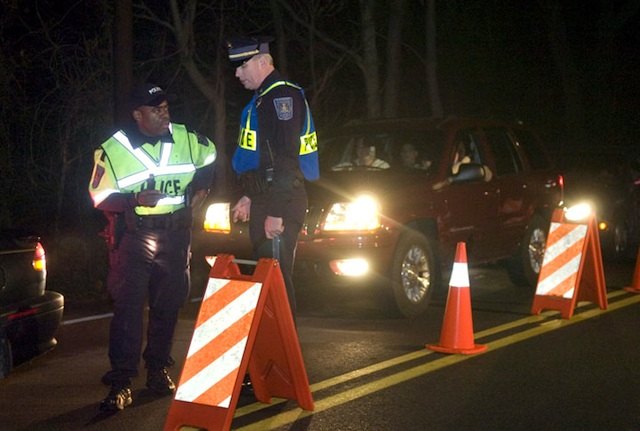

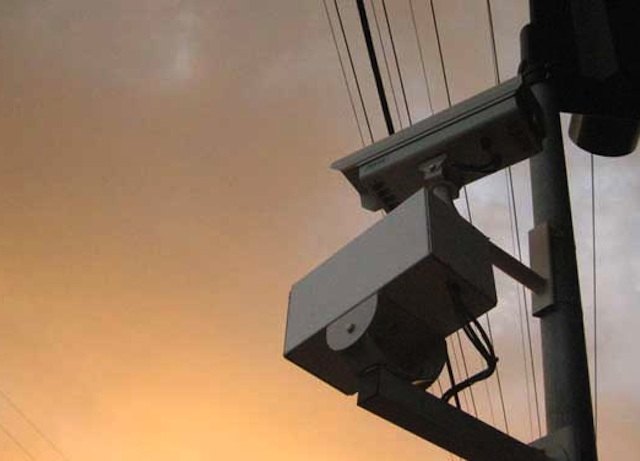

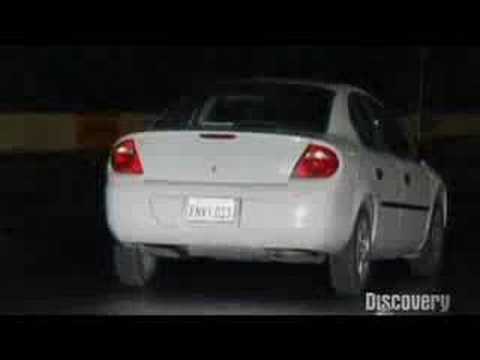

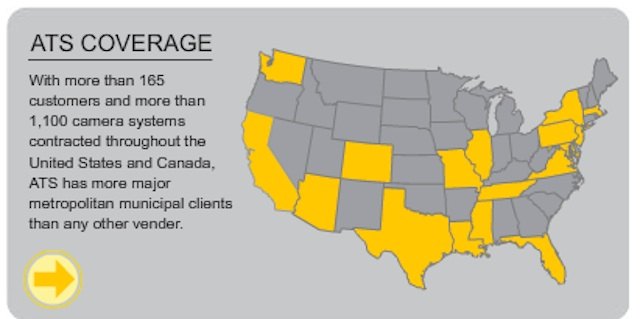
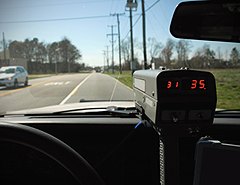
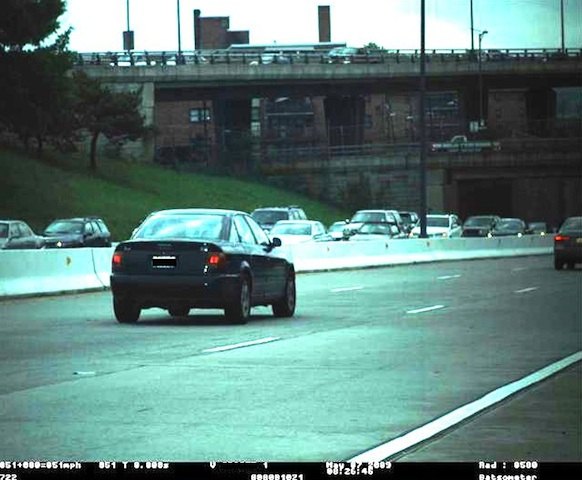



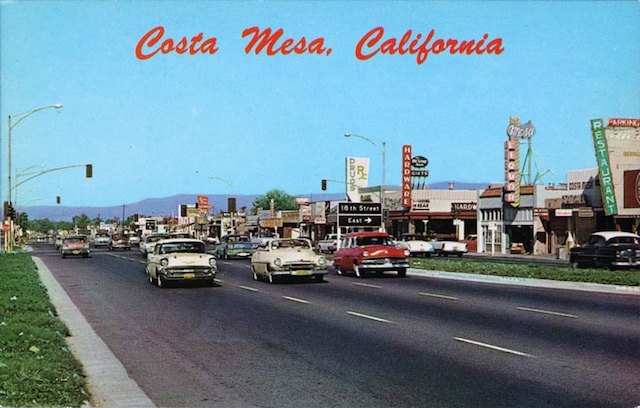
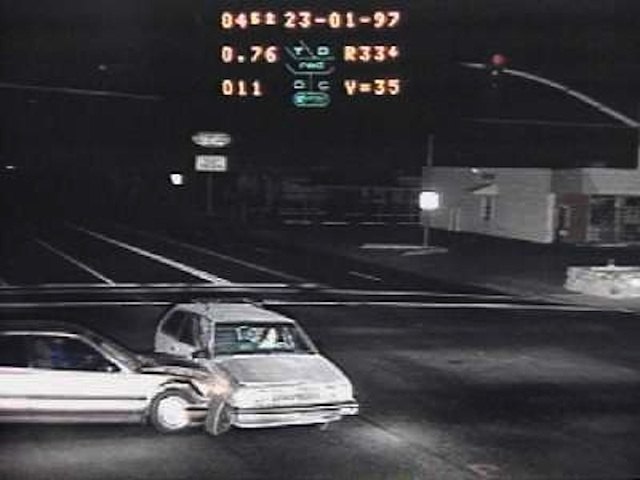
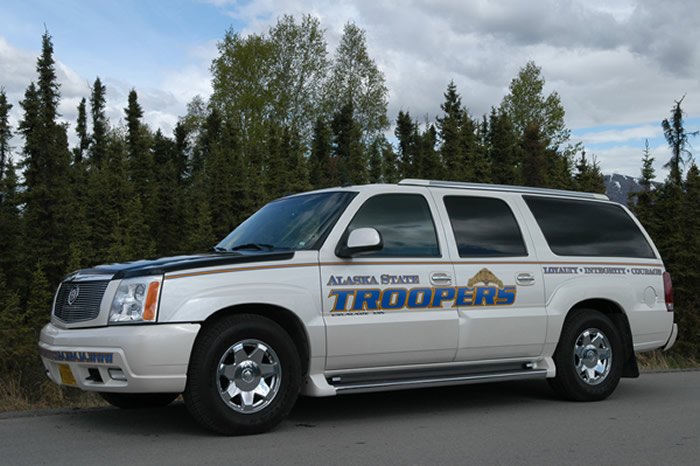


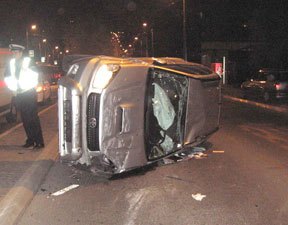
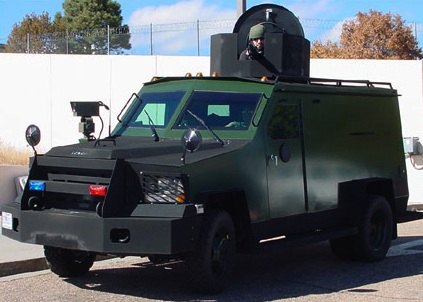




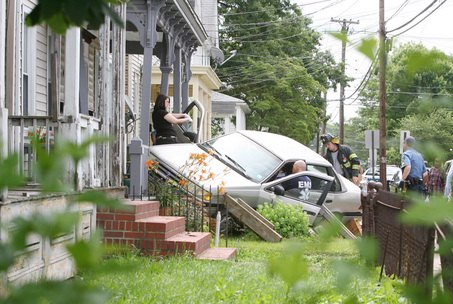
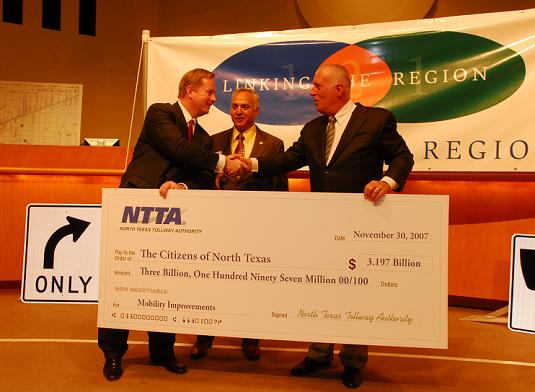
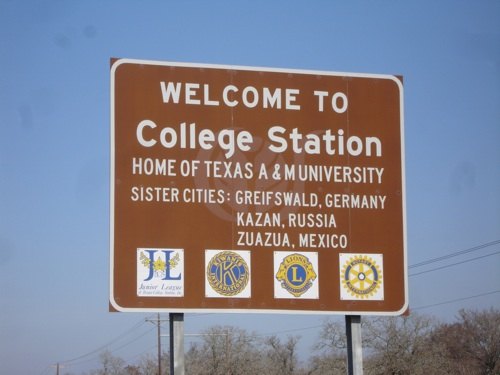



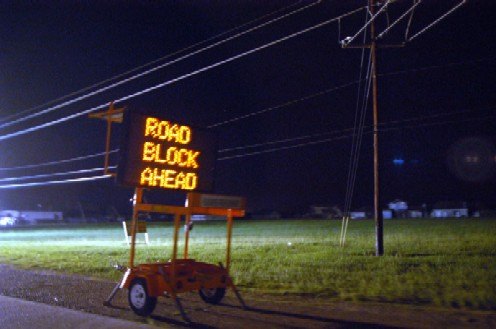


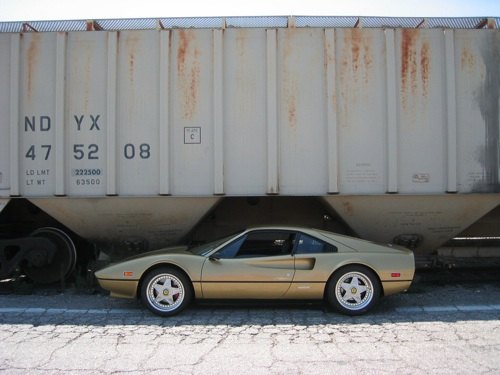
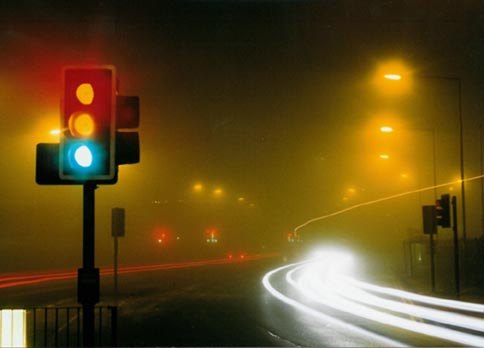
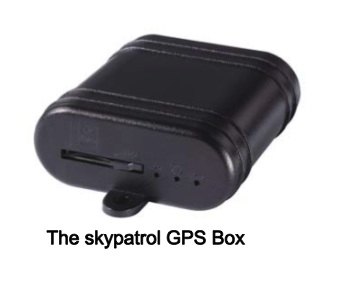



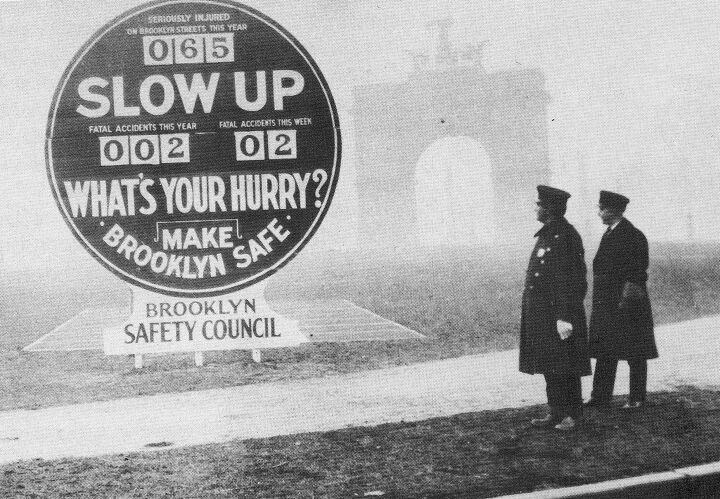












Recent Comments